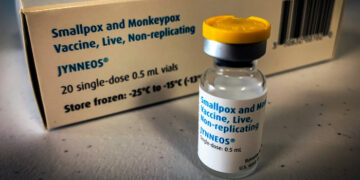According to figures compiled by the International Trade Centre during the course of two years, Nigeria spent $3.49 billion importing foodstuffs such poultry eggs, fish, milk, dairy, and fish products.
Fish goods worth $2.14 billion and dairy products totaling $1.35 billion were imported during the reporting period.
Live fish, frozen fish, fish fillets and other fish meat, whether minced, fresh, chilled, or frozen; dried fish; salted fish; brined fish; smoked fish; fish flours, meals, and pellets; and fish oil were all considered part of the fish products.
Also included were mollusks, smoked or not, crustaceans, whether in shell or not, live, fresh, chilled, frozen, dried, salted, or in brine, and flours, meals, and pellets of crustaceans.
Aquatic invertebrate flours, meals, and pellets were also brought in for use.
Butter, including dehydrated butter and ghee, and other fats and oils derived from milk were also imported as dairy spreads, along with milk and cream, buttermilk, curdled milk and cream, yogurt, kephir, and other fermented or acidified milk and cream, whey, products consisting of natural milk constituents, whether or not containing added sugar, and butter.
Natural honey; Turtle eggs; birds’ nests; other culinary items of animal origin; cheese and curd; fresh, preserved, or cooked birds’ eggs in shell; birds’ eggs not in shell and egg yolks fresh, dried, cooked by steaming or boiling in water, molded, frozen, or otherwise preserved; natural honey;
Stakeholders agree, however, that the country’s foreign reserves and the market for locally produced goods are being depleted due to the continues Importing of Eggs, Fish, milk and other dairy products.





























